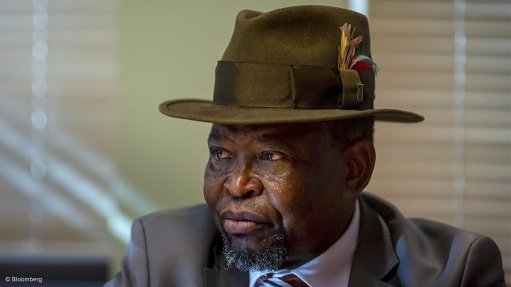
Finance Minister Enoch Godongwana
Photo by: Bloomberg
South Africa achieved its first primary budget surplus in 15 years as it took a stern approach to funding State-owned companies that have drained government finances.
Africa’s most-industrialised economy posted a primary surplus — when revenue exceeds non-interest expenditure — of R31.6 billion or 0.4% of gross domestic product in the year through March 2024, data in the South African Reserve Bank’s Quarterly Bulletin published on Thursday showed. That matched the National Treasury’s February forecast.
“The decline in non‐interest expenditure was driven by lower voted expenditure, largely owing to the sharp decline in payments for financial assets, reflecting government’s limited recapitalisation of State-owned companies,” the central bank said.
The data shows that Finance Minister Enoch Godongwana held a firm line on funding to debt-stricken State companies like ports and railways operator Transnet, providing relief only if they meet strict conditions including implementing recovery plans and selling non-core assets. In his February budget, he provided no new bailouts to state firms.
The minister also reduced State power utility Eskom’s debt-relief funds, after it failed to meet conditions attached to a R254-billion package it was granted last year that the company has been accessing in tranches.
The data will be welcomed by investors who’ve shunned South African assets because of its high debt levels. The country’s debt-to-gross domestic product ratio of 74.1% is well above the emerging-market average of 58.9%, as is the nation’s interest-to-GDP ratio.
One in every five rand of South African revenue goes to debt-service costs, which now absorb a larger share of the budget than basic education, social protection or health, the Treasury said in its February budget.
Plans by the Treasury to draw down on the nation’s Gold and Foreign Exchange Contingency Reserve Account and introduce a new binding fiscal anchor should moderate government debt. The Treasury expects it to stabilize at 75.3% of GDP in 2025-26.
The primary budget balance has been South Africa’s main fiscal anchor since 2021.